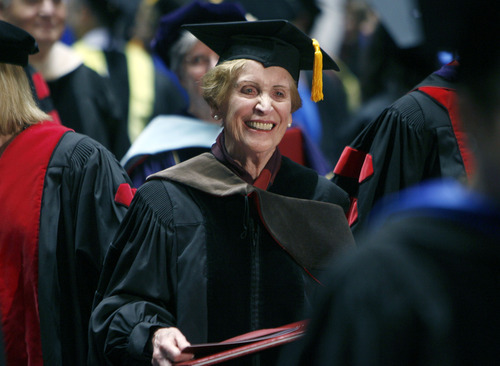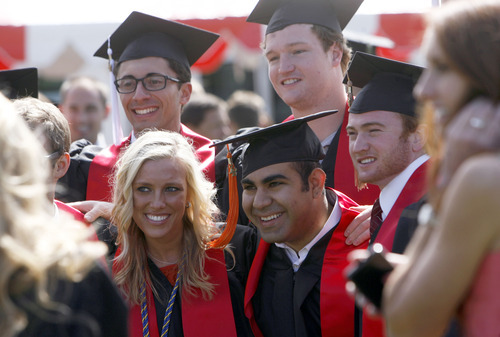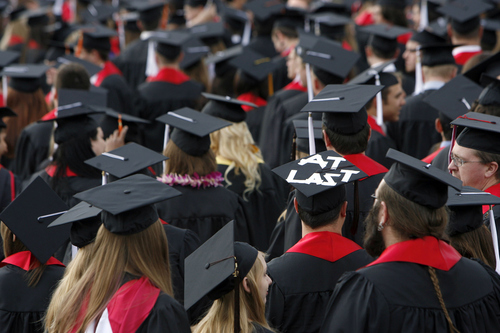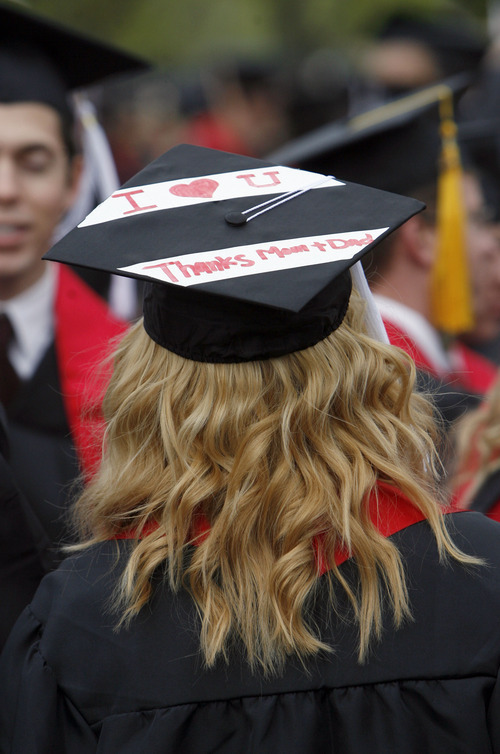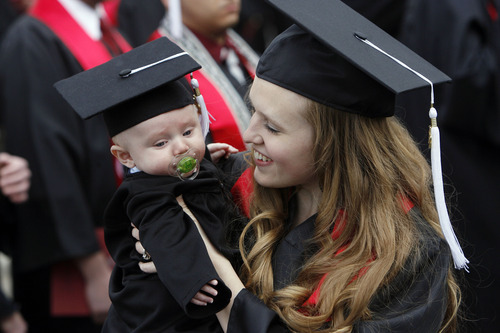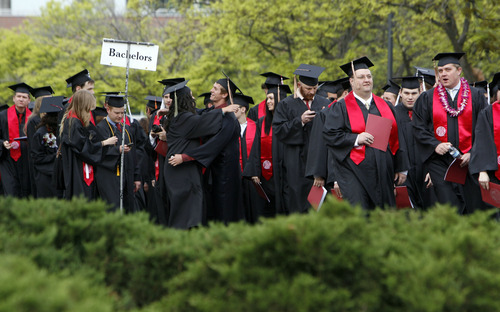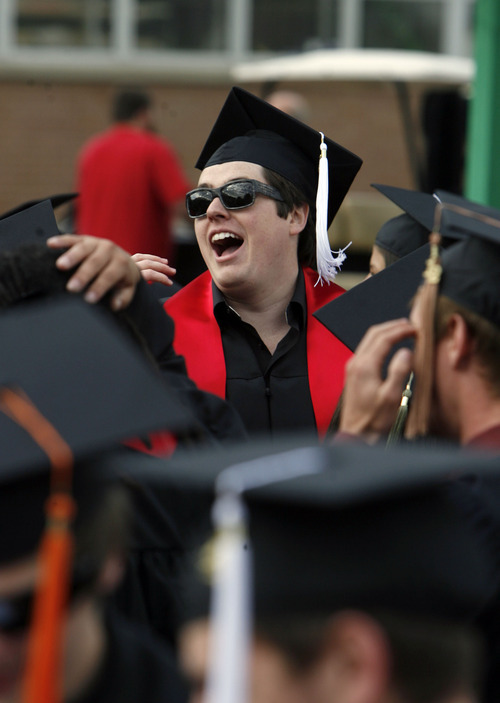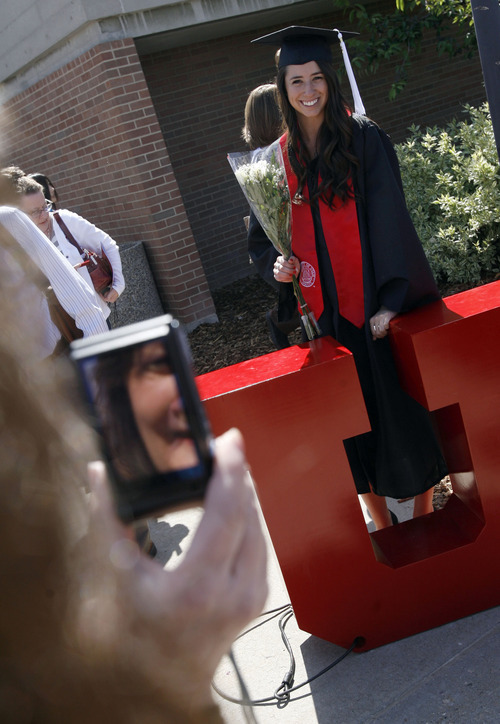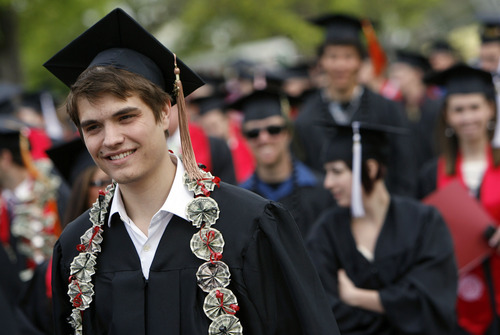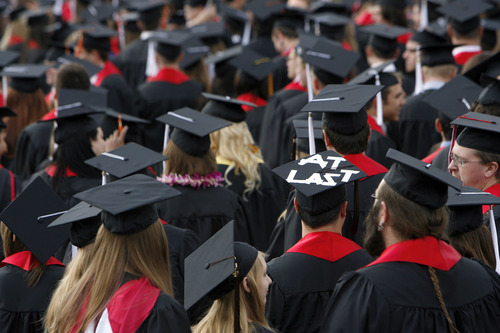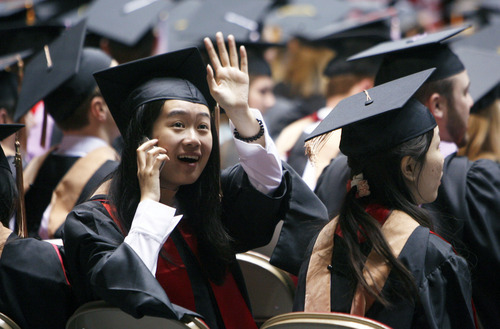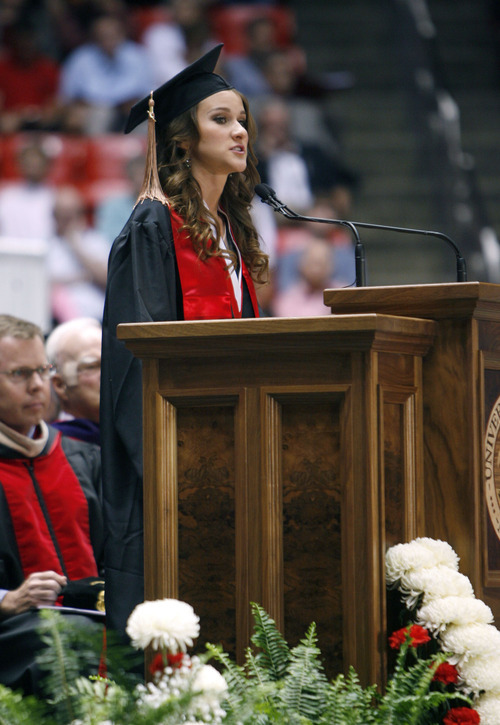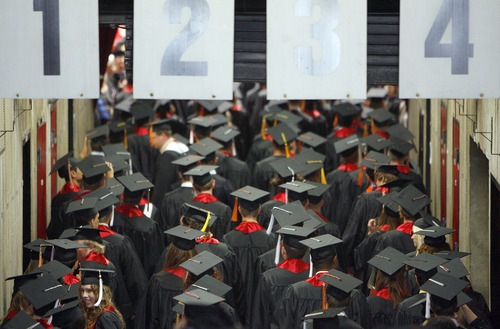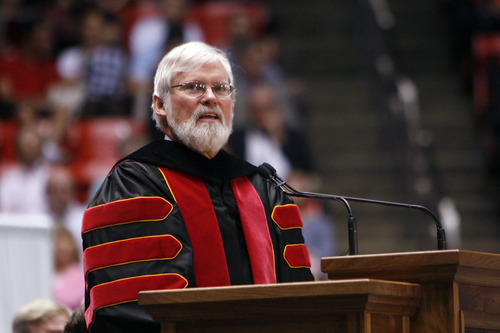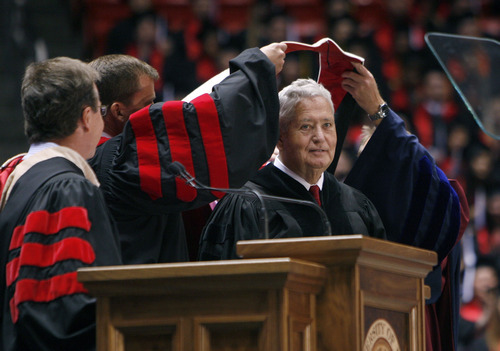This is an archived article that was published on sltrib.com in 2012, and information in the article may be outdated. It is provided only for personal research purposes and may not be reprinted.
The critical moments in life and business can be measured in inches. Two inches, to be exact, according to Pixar Animation Studios founder Ed Catmull.
That was the distance between fiery death for the Catmull family and a relatively harmless fender bender on a narrow canyon road during a Yellowstone vacation, he told University of Utah graduates gathered Friday morning at the Huntsman Center for commencement exercises. Had an oncoming car in the Catmulls' path been two inches farther to the left, their brand-new 1957 Ford station wagon would have been forced off a cliff at the road's edge.
"Two more inches, no Pixar. I have no way of conceiving the number of two-inch events in the lives of people at Pixar. When I describe those events to people, they say, 'You dodged a bullet,'" said the animation genius behind culture-setting movies such as Toy Story and Up. "Whatever instinct you have for controlling the future, you have no way of accounting for all the two-inch events."
Catmull, one of the U.'s most famous alumni, shared the podium with graduate Stephanie Roberson, who arrived on campus with firm ideas of what she wanted to do with her life. And she continually adapted her aspirations as conditions changed before graduating this week summa cum laude.
"I definitely wanted to be an accountant, who eventually wanted to be a journalist, who would have rather been a news anchor, who was really meant to be a financial analyst, who should have been an investment banker, who eventually enrolled in the Army ROTC program, quit the ROTC program, and finally decided to pursue a career in Computer Information Systems," said Roberson, a graduate of Layton Christian Academy.
Hoping to someday work for the Department of Defense, she will soon leave Utah for Germany to join her husband, Army Lt. John Tidwell, who graduated from the U. two years ahead of her and is stationed at Schweinfurt.
"As we move our tassels from one side of our caps to the other, I urge each of you to remember that, though today we have graduated from the U., we are still students, and it is only through an unyielding willingness to learn that we will succeed in creating a better world," Roberson said.
During his years as a U. undergraduate, Michael Chen did not have time to procrastinate as he cultivated his myriad interests in music, athletics and service. In addition to majoring in exercise and sports science, he minored in cello performance, coached young ski racers and led numerous Bennion Community Service Center projects.
"A lot of learning comes from extracurricular work," said Chen, who returns to the U. this fall for medical school. "Whatever you're interested in, you can always find a place at the U. It keeps the college experience alive."
U. President David Pershing asked the graduates to consider what the U.'s Class of 1942 faced on graduation, a world descending into genocidal conflict on multiple fronts. Those graduates helped guide the nation through those dark times into a period of prosperity and global leadership.
"We send [the graduates of 2012] back to a world that desperately needs their enthusiasm and expertise," Pershing said. "I am confident you are prepared for these monumental tasks and to succeed in a world of uncertainty and turmoil."
Catmull prefaced his remarks by describing his astonishment at the tendency of successful companies to make incredibly stupid missteps while at the top of their game.
"What are the forces driving people off the rails? These creative people were becoming uncreative," he said. Success has a way of undermining creativity because people don't want to abandon what supposedly worked in the past.
"We have random events. They happen so much and we are so used to it that we are almost unaware of them. We are so accustomed to assigning patterns and we attribute our success to our genius rather than to randomness," said Catmull, echoing the provocative ideas of Nassim Nicholas Taleb. "People confuse stability with balance. Instability is having things pulling you in different directions. That's where you want to be. Stability is where you're asleep or dead."
He sent graduates off with the metaphor of a door separating the known and the unknown, urging them to straddle that doorway — if they can figure out where it is.
"We should plan for the unforeseen, not prevent it," he said. "Rather than being scary, this is where the fun stuff happens."


